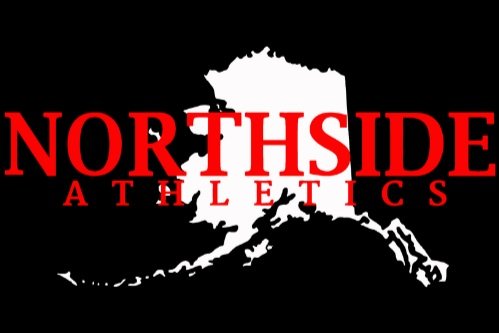Course Syllabus
Course Title: Youth & Teen Strength & Conditioning
Instructor: Matthew Sadler, Me.d., CSCS, FMS-L1, CFSC-L1
Course Description: This course is designed to introduce teens to the principles of strength and conditioning. Through a combination of lectures, practical sessions, and assessments, students will learn the fundamentals of strength training, conditioning, and overall fitness. The course aims to enhance physical performance, prevent injuries, and promote lifelong health and fitness habits.
Learning Standards & Objectives:
Understand Basic Anatomy and Physiology: Students will learn about major muscle groups, joints, and body systems involved in strength training and conditioning.
Master Fundamental Movements: Proper techniques for exercises such as squats, deadlifts, presses, and pulls.
Develop Personal Fitness Plans: Ability to create and follow personalized workout routines tailored to individual goals and fitness levels.
Learn Injury Prevention Strategies: Techniques for warming up, cooling down, and using proper form to minimize the risk of injury.
Enhance Cardiovascular Fitness: Incorporate aerobic exercises to improve heart and lung health.
Improve Flexibility and Mobility: Understand the importance of flexibility and incorporate stretching routines.
Nutrition and Recovery: Basics of sports nutrition and the role of rest and recovery in a fitness regimen.
Course Schedule:Grading Policy:
The course will be graded on a Pass/Fail basis.
To pass, students must attend at least 80% of the classes and participate actively in all sessions
Class Policies:
Attendance: Regular attendance is required. Notify the instructor in advance if you must miss a class.
Respect and Safety: Students must respect the instructor and peers and prioritize safety during all activities.
Office Hours:
By appointment only. Please contact Matthew Sadler via Matt@northsideathletics.com to schedule a meeting.
Alaska Physical Education Standards
Grades 6-8
Standard A
Demonstrate competent skills for participation in non-competitive individual activities (e.g., weight training/resistance training, swimming, exercise).
Standard B
Detect and correct errors in personal performance in a variety of activities.
Implement strategies and safety procedures for success while participating in physical activity.
Identify major muscle groups utilized in a variety of movements.
Standard C
Set SMART goals (specific, measurable, attainable, realistic, time-sensitive) for participation in activities of own choosing.
Maintain a physical activity log for a designated period of time (e.g., weight training charts, steps during the day, time engaged in physical activity).
Use current technology to monitor physical activity to meet personal goals.
Standard D
Demonstrate personal fitness by participating in activities to improve specific fitness components (cardiovascular fitness, muscular strength, muscular endurance, body composition, and flexibility).
Standard E
Demonstrate appropriate behavior in physical activity settings.
Demonstrate concern for the safety of self and others during games and activities.
Grades 9-12
Standard A
Demonstrate competent skills for participation in non-competitive individual activities (e.g., weight training/resistance training, swimming, exercise).
Standard B
Identify basic biomechanical principles as they pertain to movements within a physical activity.
Recognize various levels of performance (novice, competent, and proficient).
Apply knowledge of major muscle groups to improve performance and/or create training plans.
Explain to others the importance of strategies and safety procedures for success while participating in physical activity (e.g., weightlifting, wearing a helmet while snowboarding).
Standard C
Use current technology (e.g., heart rate monitors, tri-FIT, Dartfish, Wii Fitness) to monitor physical activity to meet personal goals.
Maintain an outside-of-class physical activity journal based upon units of study.
Standard D
Assess physical fitness status in terms of health-related fitness (cardio-respiratory endurance, muscular strength and endurance, flexibility, and body composition).
Compare and identify the fitness value of specific movement forms.
Design, implement, monitor, and adjust a personal fitness program to meet personal needs and goals for a lifetime.
Standard E
Demonstrate leadership by holding self and others responsible for following safe practices, rules, procedures, and etiquette in all physical activity settings.
Demonstrate an understanding of responsible personal and social behaviors in physical activity settings.
Standard F
Enjoy the challenge of working hard and the satisfaction of improving skills.
Seek personally challenging experiences in physical activity opportunities.
Recognize physical activity as a positive opportunity for social and group interaction.
Analyze selected physical activity experiences for social, emotional, and health benefits.
Required Materials:
Comfortable athletic wear
Sneakers
Water bottle
Phone or Tablet w/ Train Heroic downloaded
Train Heroic Account
Course Schedule:Grading Policy:
The course will be graded on a Pass/Fail basis.
To pass, students must attend at least 80% of the classes and participate actively in all sessions
Class Policies:
Attendance: Regular attendance is required. Notify the instructor in advance if you must miss a class.
Respect and Safety: Students must respect the instructor and peers and prioritize safety during all activities.
Office Hours:
By appointment only. Please contact Matthew Sadler via Matt@northsideathletics.com to schedule a meeting.
